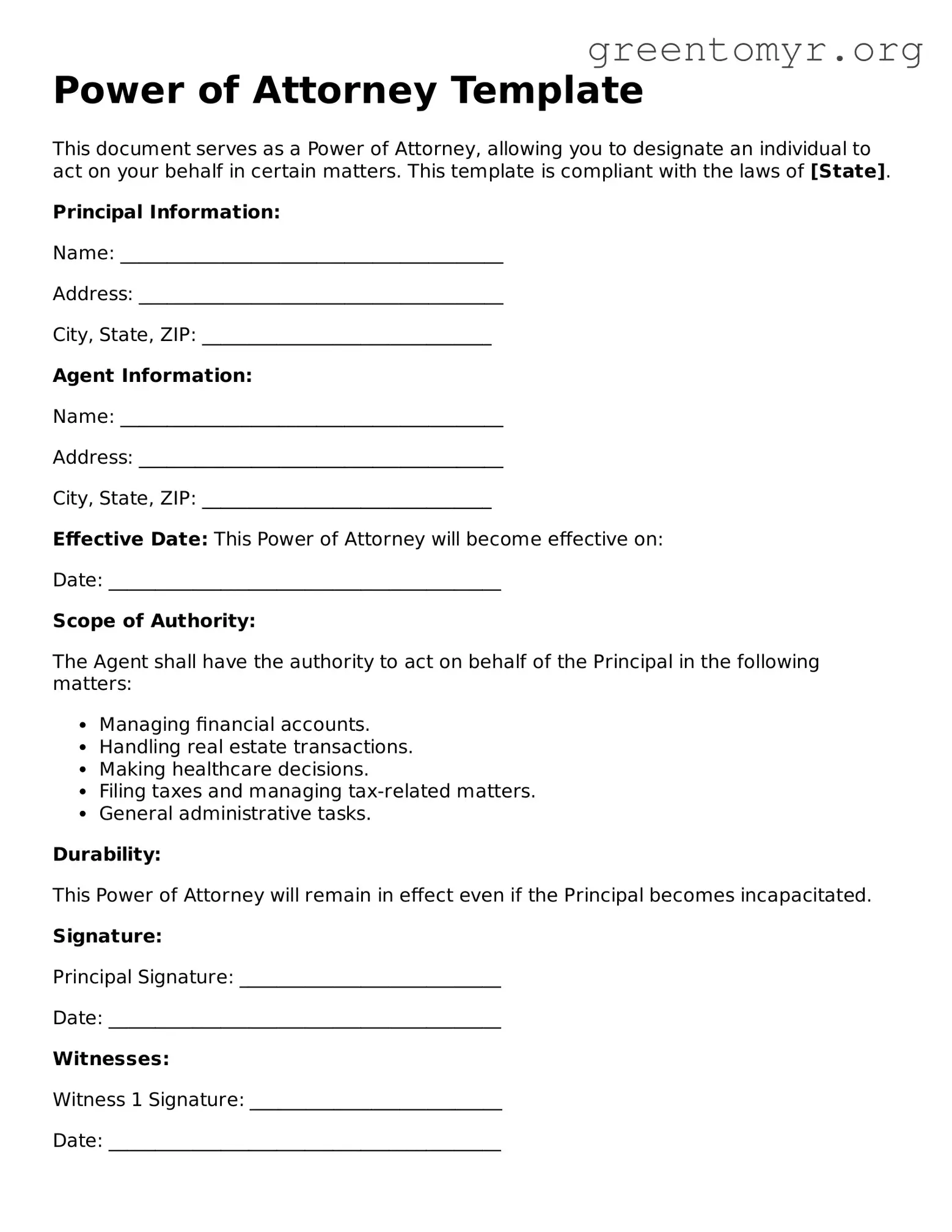Power of Attorney Template
This document serves as a Power of Attorney, allowing you to designate an individual to act on your behalf in certain matters. This template is compliant with the laws of [State].
Principal Information:
Name: _________________________________________
Address: _______________________________________
City, State, ZIP: _______________________________
Agent Information:
Name: _________________________________________
Address: _______________________________________
City, State, ZIP: _______________________________
Effective Date: This Power of Attorney will become effective on:
Date: __________________________________________
Scope of Authority:
The Agent shall have the authority to act on behalf of the Principal in the following matters:
- Managing financial accounts.
- Handling real estate transactions.
- Making healthcare decisions.
- Filing taxes and managing tax-related matters.
- General administrative tasks.
Durability:
This Power of Attorney will remain in effect even if the Principal becomes incapacitated.
Signature:
Principal Signature: ____________________________
Date: __________________________________________
Witnesses:
Witness 1 Signature: ___________________________
Date: __________________________________________
Witness 2 Signature: ___________________________
Date: __________________________________________
Notarization:
State of ___________
County of __________
Subscribed and sworn to before me this _____ day of _______________, 20__.
Notary Public: _________________________________
My Commission Expires: ______________________
